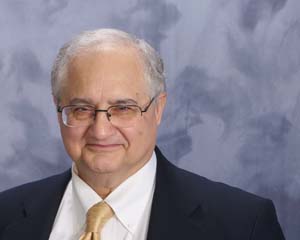Designing and Managing Distance Education Systems: Educational Systems
Dr. Farhad (Fred) Saba
Founder and Editor, Distance-Educator.com
Basic characteristics– These systems consist of a collection of courses that form a discipline supported by an academic department as well as policies and procedures affecting offering such courses and programs.
The monopoly of institutions of higher education to contribute to the knowledge base of academic disciplines and offer educational services to students is increasingly challenged by institutions that traditionally have not been educational providers.
Key personnel– Traditional members of this systems level include vice presidents of academic affairs, deans, department chairs, faculty and members of a host of decision making bodies ranging from academic senates to various committees governing the academic affairs of the university. A new cadre of professionals and their lead staff including CEOs of software companies publishers, educational broadcasters, public libraries, museums, zoos and amusement parks, however, must be added to this list as these professionals have also become involved in creating and offering new courses, providing open source educational resources, or repurposing extant courses in new offerings.
Impact On Other System Levels– As educational services become more decentralized this level may include programs and courses offered by a variety of organizations, ranging from amusement parks and museums to businesses and industries. The monopoly of institutions of higher education to contribute to the knowledge base of academic disciplines and offer educational services to students is increasingly challenged by institutions that traditionally have not been educational providers. By the same token traditional educational institutions are now compelled to reassess their brand and its value to students, their parents and other stakeholders, such as, taxpayers in this new global environment.
It is hard to predict with any certainty how the future of higher education will take shape as the impact of the new information technology in the current global economy is felt in various academic institutions. However, it is not difficult to speculate about the future and set forward some crude scenarios based on what is already taking place.
For example, community colleges that are primarily teaching institutions may expand their services to include programs beyond the first two years and expand to become four-year degree granting teaching institutions. This would put pressure on existing comprehensive four-year institutions to specialize in teaching only, conduct research or provide community service. These institutions may also select to excel in one or a few related disciplines as compared to offering a wide-ranging curriculum. Research universities with doctoral level programs may also decide to forgo most of their teaching function and concentrate on research only. In such scenarios consortia consisting of various institutions may emerge in which resources are pooled together to provide learners the broad educational experiences they have expected from the all-inclusive comprehensive institutions.
…traditional educational institutions are now compelled to reassess their brand and its value to students, their parents and other stakeholders, such as, taxpayers in this new global environment.
Models for such consortia have already been in operation for years. They range form the National University Technological Network to Western Governors University. Also, more research parks modeled after those in  California’s silicon valley or the research triangle in North Carolina may develop throughout the country to commercialize products and consulting services created and offered by faculty and students. As online courses expand fewer students would be studying in residence. Teaching hospitals would become a model for other disciplines to emulate where a few interns work directly with professional teacher/scholars to conduct research and provide services to the community.
California’s silicon valley or the research triangle in North Carolina may develop throughout the country to commercialize products and consulting services created and offered by faculty and students. As online courses expand fewer students would be studying in residence. Teaching hospitals would become a model for other disciplines to emulate where a few interns work directly with professional teacher/scholars to conduct research and provide services to the community.
Unlike the University of Phoenix which has developed to a large scale system of on campus and distance education organization, boutique proprietary organizations may also emerge which would provide educational services to a smaller group of students. With many open resources available online, these universities can compete with large-scale entities and even surpass their quality of services by making teaching, learning, research and community service personal and individual.








